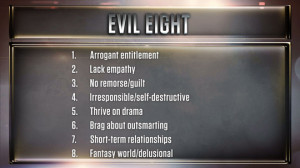
In the article “11 Fascinating Scientific Facts about Pathological Liars” by Carolyn Steber, psychologist Dr. What a relief to hear something I could finally believe.Ī pathological liar, often also called a compulsive liar, will lie habitually, so much so that lying has become second nature. One day, I asked why he lied so much, and I think he answered me honestly for once saying, “It’s just easier than telling the truth.” I begged him to just tell me the truth so that I could make a clear decision and move on with my life, but he just kept lying. The fact that I was crying every day, exhibiting clear symptoms of post-traumatic stress disorder, and experiencing daily panic attacks and insomnia didn’t phase him. Yet almost every weekend for the next couple of months, there would be more: a new slew of graphic email texts, another online affair from years back. Making it far worse was how every single time I discovered another lie, he would continue to evade the truth, later confess in the face of hard evidence, and then finally insist that I now “knew everything” and could start to “relax” since everything was out in the open. Over the next couple of years, I uncovered such a web of deceit that it felt like the past two decades of my life had been a complete facade. What bothered me almost as much as his delusion was the fact that he continued to lie, even when confronted with the evidence. Only after asking him nine more times did he then admit that the person in the photo was the love of his life, and although they had never met, he planned to fly her across the world and move her into one of his father’s apartments. I knew he was lying I could feel it powerfully in my gut. When I called him up to question who it was, he told me that since he had taken up drawing again, he had just been printing out photographs of random people from the internet.
Compulsive liar vs pathological liar professional#
If your teen lies to cover up drinking, substance use, or other risky behavior, we recommend seeking the help of a mental health professional to determine whether your teen is struggling with addiction or another mental health issue.In the fifteenth year of my marriage, I stumbled upon a computer printout on my middle-aged husband’s desk of a girl who looked to be the age of one of the high school students I used to teach. Note: If you don’t think your teen lies compulsively or pathologically, there are other instances in which teen lying requires professional intervention. That’s why treating the mental health or emotional issue itself typically improves the problem behavior. Usually, pathological lying is one of many symptoms of a mental disorder. A mental health professional will screen for the above diagnoses and then recommend a course of treatment. If your teen lies compulsively and pathologically with no apparent motive, your best choice is to arrange a psychological evaluation for them. Their lying might also get them in trouble with the law.

They may struggle to maintain close relationships with family members, peers, and authority figures. Teens who lie compulsively or pathologically may have trouble at home and at school. When pathological/compulsive lying is connected to these mental health disorders, it can cause various negative consequences.

Teens who lie compulsively may have one of the following mental health issues: Mental health disorders are usually the most common cause of pathological lying, also known as mythomania. If you feel your teen is chronically lying often for no reason at all, they may be struggling with a mental health issue. If the teen doesn’t gain anything by lying, why do they do it? Teen Mental Health Disorders They get so used to lying that they’ll tell falsehoods even when it doesn’t benefit them. They may lie about trivial things that don’t seem to matter. The stories they tell are often colorful and dramatic. Teens who lie compulsively or pathologically will lie habitually, often for no reason at all. While it’s common to tell a white lie or fudge the truth to avoid getting into trouble once in a while, compulsive lying is more extreme. Research shows roughly 96 percent of teens lie to their parents at least once in any given year. Teens typically lie to protect themselves or their friends, avoid embarrassment, avoid hurting someone’s feelings, or cover up emotions.īut there’s a difference between typical teen lying and compulsive lying. Twitter Facebook LinkedIn Email Pinterest Reddit


 0 kommentar(er)
0 kommentar(er)
